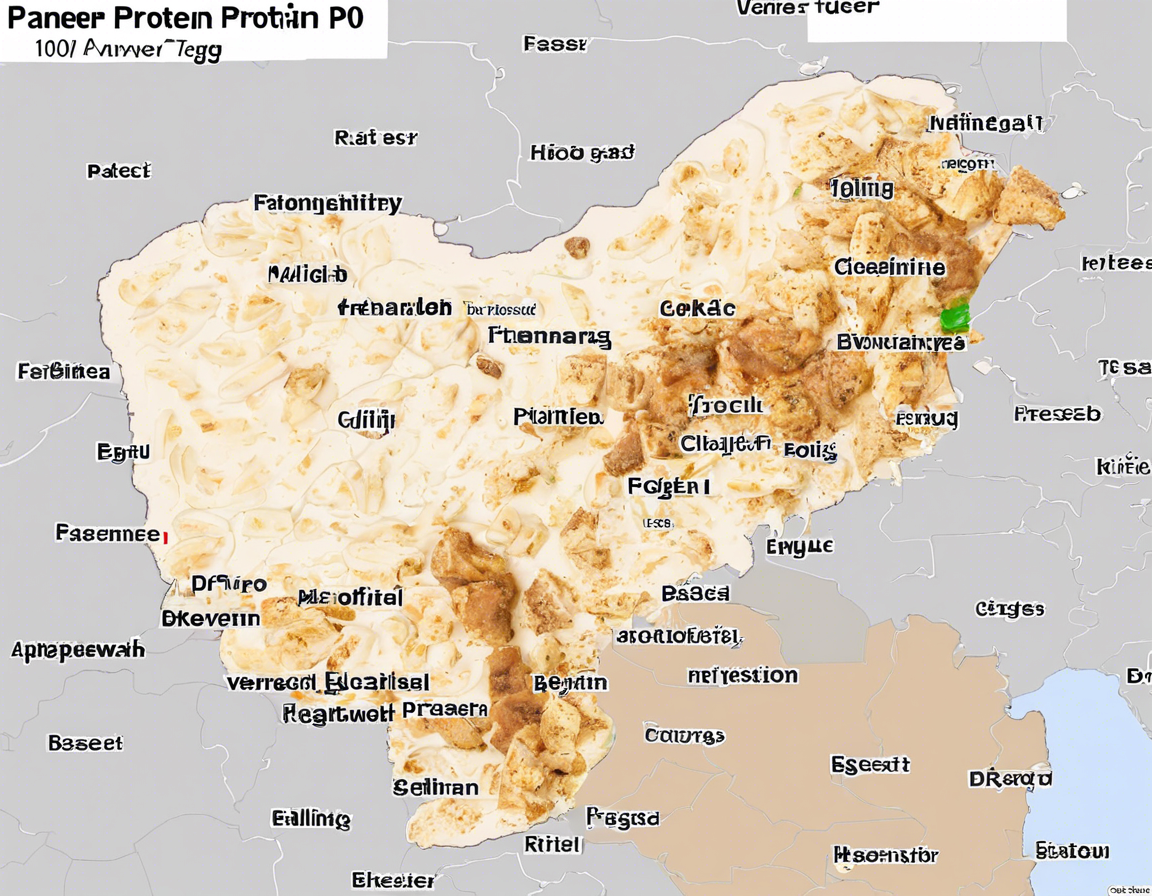Paneer, also known as Indian cottage cheese, is a popular dairy product that is widely used in Indian cuisine. It is a versatile ingredient that can be used in a variety of dishes such as curries, desserts, and snacks. One of the key reasons for its popularity is its high protein content.
What is Paneer?
Paneer is a fresh cheese that is made by curdling hot milk with a food acid like lemon juice, vinegar, or curd. The curds are then drained and pressed to form a solid block of cheese. Paneer has a mild, milky flavor and a crumbly texture.
Nutritional Profile of Paneer:
Paneer is a protein-rich food that is also a good source of calcium, phosphorus, and vitamin D. A 100g serving of paneer typically contains around 18-20g of protein. This makes it an excellent choice for vegetarians and vegans looking to increase their protein intake.
Protein Content of Paneer:
Proteins are made up of amino acids, which are the building blocks of our body. Paneer is a complete protein, meaning it contains all the essential amino acids that our body needs. The protein content of paneer is similar to that of meat, making it an excellent alternative for those following a vegetarian or plant-based diet.
Benefits of Paneer’s Protein Content:
-
Muscle Building: Protein is essential for muscle repair and growth. Including paneer in your diet can help in building and maintaining lean muscle mass.
-
Weight Management: Protein is known to increase feelings of fullness and reduce appetite. This can be beneficial for weight management by preventing overeating.
-
Bone Health: Paneer is a good source of calcium and phosphorus, which are important for maintaining strong and healthy bones.
Ways to Include Paneer in Your Diet:
-
Paneer Tikka: Marinated and grilled paneer chunks with vegetables.
-
Palak Paneer: Creamy spinach curry with cubes of paneer.
-
Paneer Bhurji: Scrambled paneer with onions, tomatoes, and spices.
Tips for Buying and Storing Paneer:
-
Always check the expiry date before buying paneer.
-
Store paneer in the refrigerator in an airtight container to prevent it from drying out.
-
To increase the shelf life of paneer, you can also freeze it for up to 3 months.
Frequently Asked Questions (FAQs) About Paneer’s Protein Content:
- Is paneer a complete source of protein?
-
Yes, paneer is considered a complete protein as it contains all the essential amino acids required by the body.
-
How does the protein content of paneer compare to other dairy products?
-
Paneer typically has a higher protein content compared to other dairy products like milk or yogurt.
-
Can paneer be consumed by people who are lactose intolerant?
-
Paneer is low in lactose and can usually be consumed by people who are lactose intolerant in moderation.
-
Does the protein content of paneer vary between homemade and store-bought versions?
-
The protein content of paneer may vary slightly between homemade and store-bought versions depending on the milk used and the manufacturing process.
-
Can paneer be included in a weight loss diet?
- Yes, paneer can be included in a weight loss diet as it is high in protein and can help keep you feeling full for longer.
In conclusion, paneer is not only delicious but also a nutritious addition to your diet due to its high protein content. Whether you are looking to build muscle, manage your weight, or simply enjoy a tasty dish, incorporating paneer into your meals can offer numerous health benefits.
